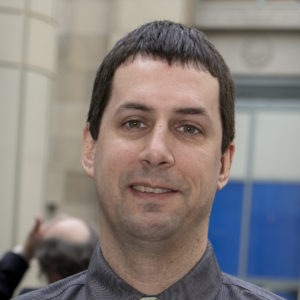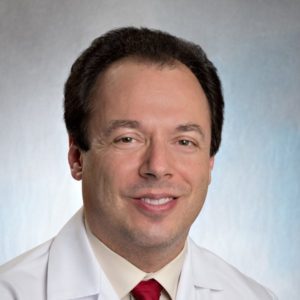ROC Election

William Oldham, MD, PhD
Assistant Professor of Medicine
Statement
I am an Assistant Professor of Medicine in the Division of Pulmonary and Critical Care and I am seeking your support in this election for the Basic Science Junior Faculty Representative on the BRI Research Oversite Committee. As your representative, I will actively solicit new ideas for ways the BRI can support the careers of junior faculty, encourage junior faculty involvement in the mission of the BRI, and energetically advocate for the interests of young investigators. In particular, I will work to expand funding opportunities targeting junior faculty, to lower barriers to access core facilities, and to generate opportunities to identify and develop meaningful collaborations among junior faculty. I received my PhD in Pharmacology and MD from Vanderbilt in 2008. I completed training in internal medicine at MGH and pulmonary and critical care medicine as part of the Harvard combined fellowship program. I completed my post-doctoral studies in Joseph Loscalzo’s laboratory and, currently, I am a K08-funded investigator studying the metabolic pathobiology of pulmonary vascular disease. In addition, I serve as the Scientific Director of the BWH Seahorse Core. Thank you for your support!

Matthew Ramsey, PhD
Assistant Professor of Dermatology
Statement
When I started my research career in 2000 as a Research Technician in the BWH Department of Dermatology, the overall success rate for NIH funding was 31.5%. When I returned to BWH in 2013 to run my own research program, the success rate had been cut in half to 16.8%. In this extremely challenging funding environment, institutional support for new investigators as they work towards NIH funding is essential to building the future of BWH research.
I would like to serve as the Junior Faculty representative on the BRI Research Oversight Committee to build on the support mechanisms which help beginning investigators navigate the complex process of building a functioning laboratory, publishing papers, and obtaining long-term funding. During my time at BWH, I have participated in BRI events, including Discover Brigham, BRI Faculty lunches, and Research Roundtables, which have demonstrated to me the many important roles the BRI plays in supporting research. I will advocate for increased resources to fund seed grants and pilot studies, which can help new investigators generate necessary data for larger foundation and NIH grants. In addition, I will work to improve the integration of new faculty, whose labs are spread throughout the various research buildings in the LMA, into the BWH community.
I started my career as a research technician in the BWH Department of Dermatology from 2000-2002, studying cell cycle control in keratinocytes in the laboratory of James Rheinwald, PhD. I received my PhD in Genetics and Molecular Biology in 2007 from the University of North Carolina at Chapel Hill, where I studied the intersection of cancer and aging in the laboratory of Norman Sharpless, MD. From 2007-2013, I was a post-doctoral fellow in laboratory of Leif Ellisen, MD, PhD at the MGH Cancer Center, where I focused on understanding the functions of the p63 transcription factor in Squamous Cell Carcinoma (SCC). I returned to BWH in 2013 and am currently an Assistant Professor of Dermatology. My laboratory is working to understand how transcriptional de-regulation drives SCC tumorigenesis. In addition, we are investigating the transcriptional control of wound re-epithelialization, with the goal of developing better treatments for chronic ulceration.

Peter Sage, PhD
Instructor in Medicine
Statement
As an Instructor in Medicine in the Renal Division, I am very excited about the possibility of serving as the basic science Junior Faculty representative on the BRI Research Oversight Committee (ROC).
As your representative, I will ensure that young investigators have access to essential resources that will enable small labs to thrive in a competitive environment. I will help prioritize internal grants that are targeted to junior faculty to help fund new projects. In addition, I will ensure that cutting edge technology, which is essential in the basic research environment, is both easily accessible and affordable. Lastly, I will streamline the application process to obtain resources so that more time can be spent on research.
As a junior faculty member starting a laboratory, I myself have relied on the funding from BRI grant mechanisms. I know how important these resources are for junior faculty.
I received my PhD in Immunology from Harvard in 2013. I then did my post-doctoral work with Dr. Arlene Sharpe at Harvard Medical School. I started my independent laboratory in the Transplant Research Center at BWH in 2017. My laboratory focuses on understanding immunoregulation of antibody responses utilizing both complex genetic models of disease and cutting edge genomics techniques.
POPULATION SCIENCE SENIOR FACULTY

Howard Sesso, ScD
Associate Professor of Medicine
Statement
I have been grateful for the opportunity to represent you as the interim Senior Faculty representative in Population Science on the Brigham Research Institute Research Oversight Committee (BRI ROC) since May 2017. I am eager to expand my contributions for the BRI ROC on your behalf and want your vote!
During my brief time actively participating in BRI ROC meetings, committees, and events, I have gained a deeper appreciation for the challenges – and opportunities – of the BRI. For us to succeed in an increasingly competitive research environment, the BRI should seek to more directly support our research endeavors, improve its visibility and accessibility as a research resource, and promote professional and collaborative opportunities with our colleagues throughout BWH.
As an Associate Professor of Medicine at the Divisions of Preventive Medicine and Aging at BWH, I have a diverse research portfolio investigating major risk factors for cardiovascular disease, cancer, hypertension, and other chronic disease endpoints through clinical trials (e.g. PHS I/II, WHS, VITAL, and COSMOS), epidemiologic analyses, and interdisciplinary consortia. This breadth of experience places me in a strong position to represent Population Science, which is inherently multidisciplinary, on the BRI ROC.
As your representative on the BRI ROC, I will ensure that the BRI reaches and empowers you with expanded opportunities for successful, collaborative, and innovative research in Population Science at BWH. I will advocate for additional BRI resources to help support young investigators in Population Science in their transition to research independence amidst the ongoing, challenging funding climate. With your vote, I promise to represent our needs and concerns with a strong voice and thoughtful leadership.

Alexander Turchin, MD, MS
Associate Professor of Medicine
Statement
As a faculty member in the Division of Endocrinology since 2005, I am looking to give back to the Brigham community. I would be honored to be able to do that by serving as the Population Science Senior Faculty representative on the Brigham Research Institute Research Oversight Committee.
As your representative, I will work to improve researcher access to shared data and analytical resources; continue to expand Research Computing infrastructure for data storage and advanced analytics; increase opportunities for networking and collaboration between Brigham investigators; increase internal funding for innovative pilot studies in population science and other areas; and develop new channels for BWH researchers to disseminate their findings.
I currently serve on BWH Research IT Advisory Board. I also serve as Director of Informatics Research and Director of Quality in Diabetes at the Division of Endocrinology. Nationally, I serve on the Methods and Data Council of AcademyHealth (academic society focused on health services research and quality of care) and on the Agency for HealthCare Research and Quality Health Information Technology Study Section.
I received my MD from Johns Hopkins School of Medicine in 1999 and Masters in Medical Informatics from MIT in 2005. I did my Internal Medicine training at Tufts / New England Medical Center and came to BWH in 2002 for Endocrine fellowship.
My research focuses on quality of care in treatment of diabetes, hyperlipidemia and hypertension. Our group uses advanced medical informatics technologies, including natural language processing (using our publicly available natural language processing platform Canary, to analyze longitudinal electronic medical record data to identify process measures that are tightly linked to improved short- and long-term patient outcomes.

